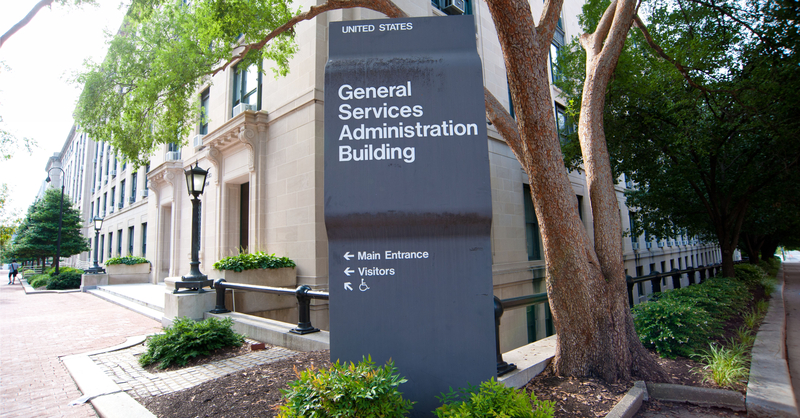A version of this article was originally published on the Global Witness blog.
The U.S. government goes to great lengths to protect our national security. And yet, our failure to manage company ownership in this country leaves us exposed to all sorts of risk. Put simply, it is way too easy for the criminal or corrupt to hide their ownership of U.S. property behind a fake company, or a series of companies in order to stash or move their dirty money without detection.
Let me give you an example. In 2013, a Global Witness undercover investigation exposed how the former Chief Minister of Sarawak in Malaysia, Abdul Taib Mahmud, and his family used their political status to buy land and forest concessions for way less than their commercial value. Swathes of the Sarawak rainforest were destroyed as a result of these schemes, as well as various abuses committed against the rightful land owners. The Chief Minister’s brother used his secretly owned Singaporean company to hide profits from those corrupt forest and land deals and so that he could avoid paying around $10 million in taxes. You can watch the film we made here:
So when a recent U.S. government investigation by the Government Accountability Office (GAO) found that the Federal Bureau of Investigation’s (FBI) Seattle field office building is ultimately owned by Mr. Taib’s family, through a web of domestic and foreign companies, we were concerned. By the end of the government’s 20-year lease in 2019, U.S. taxpayers will have paid the Taib family $56 million in rent. Yet, the FBI and the General Services Administration (GSA) – the government agency responsible for leasing office space – are not concerned about the ownership of this field office, or where the money came from to finance the building. This is despite the fact that the agency renting space at the office is in charge of combatting things like terrorism in Asia, public corruption and money laundering.
This makes no sense.
The point of the GAO’s investigation was to identify risks to government facilities and agencies, like the FBI or secret service that lease high security space from foreign owners. Potential risks include security breaches, cyber-attacks, or leasing buildings which may be funded by corruption or have hidden owners that are using their investment in the office building to launder money. Where the ultimate beneficiary is an occupant of a public office, there is a risk that the funding of the building may be derived from an abuse of that office. This is the risk with a building owned by the Taib family, who has built up numerous commercial interests since Abdul Tain Mahmud first took office.
This case of the Seattle FBI field office is unlikely to be the only example of such serious risk, and certainly not when considering all federal spending. The GAO investigators admitted that they probably missed other risky leases because they were unable to identify the ultimate or “beneficial owners”, of leasing companies. The GSA does not require the collection of beneficial ownership information from U.S. government contractors. This meant that the GAO could not identify the owners of one-third of the government’s leases at high security spaces as of March 2016. In the case of 17 leased buildings with foreign owners, the GSA reported it was not able to validate owners in seven cases due to a lack of ownership information in government records (four were not owned by foreign companies or were not actually being leased). So we have no systematic way of knowing who the people behind the buildings are, and whether we want to pay them rent.
According to the GSA, the main thing it checks when assessing potential lessors is whether they have enough money to service the lease – not the source of their funds. It also checks if the potential lessor meets the definition of a ‘responsible party’ and whether they can fulfill their obligations under the agreement. The GSA must also review these contractors against a list of parties banned from doing business with the government, and a list of sanctioned persons or companies in order to avoid that business.
However, this begs the question: How can the GSA properly review potential lessors when it does not have sufficient information, especially about the real people behind contracting companies receiving taxpayer funds?
The GSA told the GAO investigators that there are very limited resources available to them that would enable them to identify building owners in order to effectively carry out these checks. There is the potential for this to change soon.
When it comes to federal spending even beyond just leasing, the Administration has the authority to act without Congress. To exercise this power the GSA has begun assessing better ways to track contracting companies with unique identifiers in order to ensure taxpayer dollars are awarded with integrity. We join other civil society organizations and the business community in welcoming this process, which we have called for.
To achieve its goals, the GSA should adopt a contractor identifier that is a non-proprietary, open system and that includes the collection and publication of beneficial ownership information. This would greatly enhance other pieces of legislation such as the Digital Accountability and Transparency Act of 2014 (DATA Act), which for the first time mandates data transparency and seeks to link up U.S. federal spending information as standardized data available to everyone online.
These steps are essential to empowering agencies like the GSA to protect our national security, including our troops and civil servants, as well as American taxpayers.
Eryn Schornick is a Policy Advisor at Global Witness.

